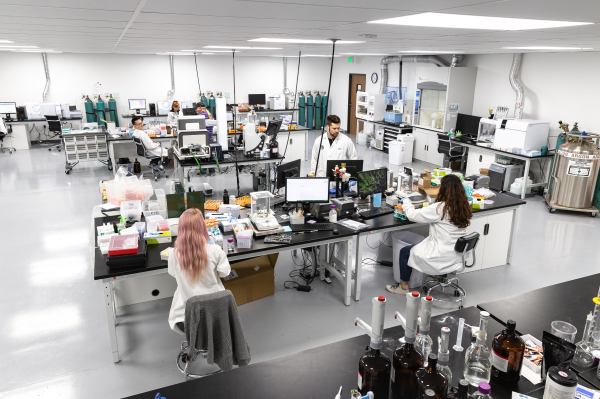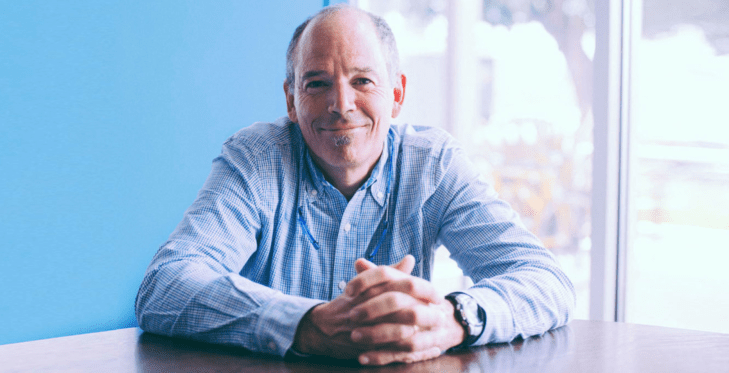Music
Trailers
DailyVideos
India
Pakistan
Afghanistan
Bangladesh
Srilanka
Nepal
Thailand
StockMarket
Business
Technology
Startup
Trending Videos
Coupons
Football
Search
Download App in Playstore
Download App
Best Collections
Technology

- Details
- Category: Technology
Read more: Mysterious flash on Jupiter was caused by an asteroid crash, scientists reveal
Write comment (95 Comments)
- Details
- Category: Technology
Read more: How augmented reality boosts training and productivity
Write comment (99 Comments)
Just in time for the iPhone 11, Apple will ship iOS 13 on Sept. 19 (with a significant update planned just two weeks later). You should try these improvements first:
Check out Apple Arcade
This won&t do anything to boost your productivity, but it just might be fun.
Apple surprised everyone when it soft-launched the gaming service to iOS 13 beta testers & and feedback so far seems really positive.
To read this article in full, please click here
- Details
- Category: Technology
Read more: 13+ things you’ll want to try first when you upgrade to iOS 13
Write comment (97 Comments)
Indonesia has one of the fastest-growing e-commerce markets in the world, but the logistics industry there is still very fragmented, creating headaches for both vendors and customers. Shipper is a startup with the ambitious goal of giving online sellers access to &Amazon-level logistics.& The company has raised $5 million in seed funding from Lightspeed Ventures, Floodgate Ventures, Insignia Ventures Partners and Y Combinator (Shipper is part of the acceleratorwinter 2019 batch), which will be used for hiring and customer acquisition.
Shipper was launched in 2017 by co-founders Phil Opamuratawongse and Budi Handoko, and is now used by more than 25,000 online sellers. Indonesiae-commerce market is growing rapidly, but online sellers still face many logistical hurdles.
The country is large (Indonesia has more than 17,500 islands, of which 600 are inhabited) and unlike the United States, where Amazon dominates, e-commerce sellers often use multiple platforms, like Tokopedia, Shopee, Bukalapak and Lazada. Smaller vendors also sell through Facebook, Instagram, WhatsApp and other social media. Once an order has been placed, the challenge of making sure it gets to customers starts. There are more than 2,500 logistics providers in Indonesia, many of whom only cover a small area.
&It is really hard for any one provider to do nationwide themselves, so the big ones usually use local partners to fulfill locations where they don&t have infrastructure,& says Opamuratawongse.
The startupmission is to create a platform that makes the process of fulfilling and tracking orders much more efficient. In addition to a package pick-up service and fulfillment centers, Shipper also has a technology stack to help logistics providers manage shipments. It is used to predict the best shipping routes and consolidate packages headed in the same direction and also provides a multi-carrier API that allows sellers to manage orders, print shipping labels and get tracking information from multiple providers on their phones.
When it launched three years ago, Shipper began by focusing on the last-mile for smaller vendors, who Opamuratawongse says typically keep inventory in their homes and fulfill about five to 10 orders per day. Since many give customers a choice of several logistics providers, that meant they needed to visit multiple drop-off locations every morning.
Shipper offers pick-up service performed by couriers (who Opamuratawongse says are people like stay-at-home parents who want flexible, part-time work) who collect packages from several vendors in the same neighborhood and distribute them to different logistics providers, serving as micro-fulfillment hubs. Shipper signs up about 10 to 30 new couriers each week, keeping them at least 2.5 kilometers apart so they don&t compete against each other.
The company began setting up fulfillment centers to keep up with vendors whose businesses were growing and were turning to third-party warehouse services. Shipper has established 10 fulfillment centers so far across Indonesia, including Jakarta, with plans to open a new one about every two weeks until it covers all of Indonesia.
Opamuratawongse says he expects the logistics industry in Indonesia to remain fragmented for the next decade at least, and perhaps longer because of Indonesiasize and geography. Shipper will focus on expanding in Indonesia first, with the goal of having 1,000 microhubs within the next year and 15 to 20 fulfillment centers. Then the company plans to tackle other Southeast Asian countries with rapidly-growing e-commerce markets, including Thailand, Vietnam and the Philippines.
- Details
- Category: Technology
Read more: Shipper, a platform for e-commerce logistics in Indonesia, raises $5 million
Write comment (100 Comments)
Cannalysis, a testing company for cannabis, has raised $22.6 million in a new round of financing as it prepares to bring a new test for vaping additives to the market.
The test, which the company is preparing to unveil later this week, will test for the presence and amount of Vitamin E acetate, a chemical compound that may be linked to the vaping related illness that has swept through the U.S. in the past month.
Cannalysis chief executive Brian Lannon said the new product was developed in response to the current crisis in the cannabis industry over illnesses related to vaping cannabis products.
&The big story thatbeen going out over the last week isn&t the product thatgoing out in cannabis, but an additive called Vitamin E acetate. We have developed a test for that,& Lannon says. &As part of the different compliance testing thatrequired, itnot mandated to test for any of these additives… What I&m anticipating based on the phone calls we&ve been getting is that a lot of our customers want to get the test to show that they&re not using the stuff.&
The Santa Ana, Calif.-based company tracks cannabis products across its companies supply chain and provides data management and integration services for its customers so they can immediately update their own tracking systems with the results of Cannalysis& tests. It also integrates directly with consumer services like Weedmaps, so consumers can get third party verification of the strength of the dosage.
Quality assurance for cannabis products isn&t just a matter of legal compliance. The percentage of THC thatavailable in different strains can impact the price producers can charge for their product, Lannon says.
&The price of a cannabis product can vary greatly based on its potency,& he says. &Right now the number in the market is 20 percent. If your product tests at 18 percent instead of twenty percent, that can mean a huge difference in cost.&
While testing variance is a problem for the industry, Cannalysis says its highly automated lab, which relies on robotics and machine learning to increase the speed and accuracy of its testing, along with the integrated software services it offers to customers, exceeds the standards for ISO accreditation.
Certainly thatwhat attracted CanLab, the nationlargest testing service to commit $22 million to the company as a strategic investor.
Lannon says the new cash will be used to expand into new markets including Oregon, where the company has already made an initial hiring push, and other highly regulated cannabis markets.
A serial entrepreneur who previously founded an action sports apparel company called HK Army and MetaThreads, an esports clothing company, Lannon came to the cannabis industry initially as a user of the substance. As the market matured his interest was piqued in developing technologies that could ascertain the quality of various cannabis products.
His timing was exceptional. Investors have spent nearly $16 billion on North American cannabis companies in 2018, double the amount invested just three years ago, according to data from the analytics company New Frontier Data cited by the Associated Press. And theMarijuana Business Factbook projects that the economic impact of the legal industry was somewhere between $20 billion and $23 billion in 2017. Its a number that could grow to $77 billion by 2022.
- Details
- Category: Technology

Netflix is today a company whose valuation hovers around $130 billion, but it was, of course, once a little startup, and in his new book &That Will Never Work,& Netflixcofounder and its first CEO Marc Randolph takes readers on a fun and surprisingly vivid journey through the streaming giantearliest days.
Italso instructive, though this is more memoir than business book, and Randolph, who is the great nephew of Edward Bernays — a public relations pioneer — turns out to be a very compelling writer, explaining in sometimes humbling detail how and why the company eventually outgrew him, and the reason he doesn&t regret stepping away when he did.
In fact, rather than lament past decisions, Randolph seems to relish his longtime work as a startup advisor, one who often has no financial ties to the companies he helps. As he explains it, there is a &role for someone in a founderlife who isn&t a board member or an investor or an employee. The role of a founder-CEO is extremely lonely. You can&t always be fully forthcoming with your board or investors or employees. And if you go to your peers and you bring them an issue, they don&t really understand. So itvery valuable for a founder who doesn&t have an ulterior motive but also understands a problem well enough that they can give really good advice.&
We had a chance to catch up with Randolph earlier today to discuss the book and his current relationship with his Netflix cofounder Reed Hastings, who he met when the company that Hastings began running in 1991, Pure Atria, acquired Randolphcompany, Integrity QA Software, (They both found themselves searching out the next big thing when Pure Atria was itself acquired.)
Randolph also shared why it took him 16 years to tell his story about what has become one of the most impactful companies in the history of television.
TC: We&re still zipping through the book but there is a lot of great storytelling here, from scenes with you and Reed carpooling to the office together, to some of earlier startup ideas you ran past him and he didn&t think much of, including customized baseball bats. Did you write this alone?
MR: Of course, I had help, you can&t write about something as important as Netflix by yourself. Over the course of one-and-a-half years, I spent tons of time on the phone and [engaged in] email correspondence and in meetings with everyone I could track down, because I wanted to hear all those stories again. But this isn&t a ghostwritten book and itnot a as-told-to book. I did write it with the help of a great editor. In fact, the book was originally conceived as more of a self-help book, but my editor came back and said, &You shouldn&t do this as a ‘you& book. Make it a ‘me& book. Make the lessons you&ve learn over your career implicit instead of explicit.&
But I&ve been writing all my life. I was a direct marketing guy [before founding Netflix]. I had to restrain myself from writing things like, &Frankly, I&m puzzled,& and &But wait! Theremore!&
TC: You left Netflix in 2003. Why not write a book sooner?
MR: I needed to wait all that time. Even though I needed to tell the story, I didn&t really understand the lessons. It has taken me working with other early-stage companies and mentoring them and investing in them to make these connections. Why did Netflix work? What were my failings? What could I have done better?
TC: You&re pretty candid in the book about not being punctual and not having great attention to detail, but these are minor offenses.
- Details
- Category: Technology
Page 855 of 5614

 16
16





